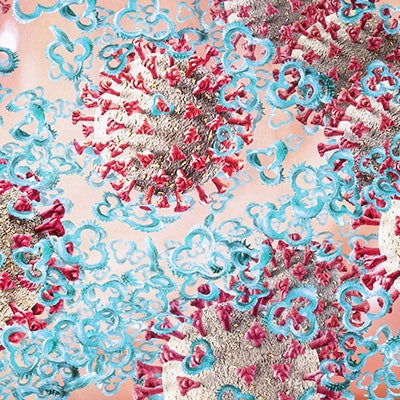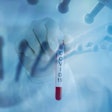
A group of researchers, including those from the U.S. National Institutes of Health (NIH), has identified "rogue antibodies" that correlate with severe COVID-19 illness, according to a study published in the journal Arthritis & Rheumatology on February 17. The new findings offer a way to screen COVID-19 patients earlier for risk of extreme blood clotting.
The goal of the study was to identify circulating factors, such as hormones and antibodies, in COVID-19 patients that contribute to the activation and dysfunction of endothelial cells, which are the main type of cell found in the inside lining of blood vessels, lymph vessels, and the heart.
The researchers, led by Dr. Hui Shi, PhD, of the University of Michigan, cultured human endothelial cells in the presence of serum or plasma from 244 patients hospitalized with COVID-19 and plasma from 100 patients with non-COVID sepsis. Comparing the samples, the researchers found that the presence of circulating antiphospholipid antibodies was a strong marker of the ability of the COVID-19 serum to activate endothelial cells.
Such circulating antiphospholipid antibodies are sometimes called "autoantibodies" because they target a person's own organs and systems. They are commonly found in people with autoimmune disorders such as lupus but can also be activated in response to viral infections.
In particular, the scientists found the COVID-19 samples contained higher levels of the antibody immunoglobulin G (IgG), which works with other immune cells, such as IgM, to respond to immune threats. Higher levels of IgG were also associated with a higher risk of COVID-19 disease severity, including the need for respirators and intubation.
"These data are the first to suggest that some patients with COVID-19 have potentially diverse antibodies that drive endotheliopathy, adding important context regarding thrombo-inflammatory effects of autoantibodies in severe COVID-19," the authors concluded.


















